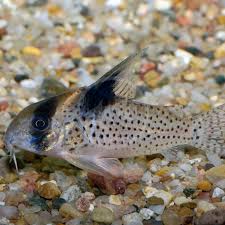Dragons and Their Connection with Legendary Figures in Chinese Culture

Dragons are deeply embedded in Chinese culture, embodying strength, power, wisdom, and protection. Unlike the terrifying, fire-breathing beasts of Western mythology, Chinese dragons are considered auspicious, benevolent creatures that represent balance, harmony, and prosperity. The dragon is also intricately linked with legendary figures in Chinese mythology and history. From ancient emperors to mythical heroes, the dragon has played a significant role in shaping the stories, traditions, and beliefs of the Chinese people. In this article, we will explore how dragons are connected to legendary figures in Chinese culture, and how these connections have influenced the development of Chinese history and traditions.
The Dragon as a Symbol of Imperial Power
In Chinese culture, dragons are closely associated with the imperial family and the concept of divine rule. Emperors were often considered to be the earthly embodiment of dragons, with the dragon symbolizing their connection to heaven and their mandate to rule with wisdom and strength. This connection between the dragon and the emperor is one of the most prominent and enduring aspects of Chinese cultural heritage.
The Emperor as the “Son of Heaven”
The emperor in ancient China was referred to as the “Son of Heaven” (天子, Tianzi), a title that emphasized the divine right to rule. The belief that the emperor was a direct descendant of the heavens meant that the dragon, as a celestial creature, was seen as a protector and a symbol of imperial power. The dragon was often depicted on the emperor’s robes, seals, and thrones, reinforcing the idea that the emperor’s authority was divinely sanctioned.
The “dragon throne” (龙椅, long yi) was a highly symbolic piece of imperial furniture. It was believed that the emperor, while sitting on the dragon throne, would be in direct contact with the dragon’s celestial energy, which bestowed wisdom, power, and longevity. The dragon was not just a decorative symbol; it was a manifestation of the emperor’s connection to the divine, ensuring the stability and prosperity of the nation.
The Five Dragon Emperors
In Chinese mythology, there are numerous legendary figures who are said to have had a special connection with dragons. One of the most notable of these is the “Five Dragon Emperors” (Wu Long Huang Di). These mythical emperors were believed to have had the unique ability to communicate with dragons and to wield their power in order to maintain peace and prosperity in the empire. The Five Dragon Emperors were celebrated for their wisdom and strength, and they became central figures in Chinese folklore.
Each of the Five Dragon Emperors was associated with one of the five elements—wood, fire, earth, metal, and water—which were thought to represent different aspects of the natural world. The dragon, with its serpentine form and powerful energy, was believed to embody the balance of these elements, and thus it played a crucial role in ensuring the harmony of the universe.
The Dragon and Legendary Heroes
Beyond the imperial court, dragons are also closely tied to some of the most famous heroes in Chinese mythology. These legendary figures often had a close relationship with dragons, either through their quests, powers, or divine protection. In these stories, dragons frequently serve as guides, protectors, or symbols of strength.
The Yellow Emperor (Huang Di)
The Yellow Emperor, or Huang Di, is one of the most iconic figures in Chinese mythology. He is often regarded as the ancestor of the Chinese people and the founder of Chinese civilization. In many versions of his myth, the Yellow Emperor is associated with dragons, particularly through his journey to the heavens.
One of the most famous stories involves the Yellow Emperor’s battle with the demon Chi You. During this conflict, it is said that the Yellow Emperor rode on a dragon to the battlefield. The dragon provided him with strength and guidance, helping him to defeat the demon and solidify his position as a legendary ruler. The dragon’s role in this myth emphasizes its connection with leadership, strength, and divine protection.
The Dragon and the Heroic Archer, Hou Yi
Hou Yi, the legendary archer, is another prominent figure in Chinese mythology who is connected with dragons. According to the myth, Hou Yi was tasked with shooting down nine of the ten suns that were scorching the earth. After completing this heroic task, Hou Yi was granted the elixir of immortality by the Queen Mother of the West. However, the connection between Hou Yi and dragons comes into play when he seeks to protect his immortality.
In some versions of the myth, it is said that Hou Yi used a dragon to help him retrieve the elixir from the Queen Mother of the West. The dragon, as a powerful and mystical creature, was able to navigate the dangerous realms where the elixir was kept, and it played a crucial role in the success of Hou Yi’s mission.
The association between Hou Yi and the dragon symbolizes the hero’s connection to cosmic forces, as well as his reliance on the dragon’s divine strength to achieve his goal. The dragon’s involvement in this myth reinforces its status as a symbol of cosmic power and protection.
The Dragon and the Immortal, Zhang Daoling
Zhang Daoling is another legendary figure in Chinese culture who is often associated with dragons. As the founder of the Taoist religion, Zhang Daoling is considered one of the most important figures in Chinese spiritual history. In Taoist lore, Zhang Daoling is said to have had a deep connection with dragons, which were believed to be the guardians of the Taoist teachings.
In many Taoist stories, Zhang Daoling is depicted as riding a dragon or using a dragon to traverse the spiritual realms. The dragon is a symbol of the Taoist quest for immortality, enlightenment, and harmony with the natural world. By associating himself with dragons, Zhang Daoling is shown to be in tune with the divine forces of the universe, which are represented by the dragon.
The Dragon and the Four Dragon Kings
In Chinese mythology, the Four Dragon Kings (Si Long Wang) are the rulers of the four seas: the East Sea, the South Sea, the West Sea, and the North Sea. These dragons are considered powerful, divine beings who govern the waters and maintain the balance of nature. The Four Dragon Kings are often featured in stories where they assist legendary heroes or emperors in their quests.
One of the most famous stories involving the Four Dragon Kings is the tale of the Journey to the West (Xi You Ji), one of China’s Four Great Classical Novels. In this story, the protagonist, the monk Xuanzang, embarks on a pilgrimage to India to retrieve sacred Buddhist scriptures. Along the way, he encounters the Four Dragon Kings, who help him by using their control over the seas to allow him to continue his journey. The dragons are portrayed as protectors and helpers, and their role in the story highlights their connection to the divine and their ability to influence the natural world.
The Four Dragon Kings are also important figures in Chinese religious traditions. They are often invoked in Taoist and Buddhist rituals, where they are seen as protectors of the faithful. The dragons’ connection to the seas and waters links them to the elemental forces of nature, and their intervention in the lives of legendary heroes underscores their status as powerful, benevolent beings.
The Dragon as a Guide and Protector
Throughout Chinese mythology, dragons are frequently depicted as guides and protectors. Whether they are assisting emperors, heroes, or ordinary people, dragons are seen as creatures that provide wisdom, strength, and divine protection. Their connection to legendary figures underscores their role as mediators between the human world and the divine, and their involvement in these stories often reflects the values and beliefs of Chinese culture.
Dragons are not only symbols of power but also of balance, harmony, and wisdom. In Chinese mythology, the dragon serves as a bridge between heaven and earth, guiding legendary figures toward their destinies and ensuring the prosperity and well-being of the people. As protectors of the natural world and divine forces, dragons continue to hold a special place in the hearts and minds of the Chinese people, embodying the values of strength, protection, and the harmonious flow of energy that defines Chinese culture.
Conclusion
Dragons have long been central to Chinese mythology, not just as symbols of power but also as creatures intertwined with the lives of legendary figures. From emperors to heroes, the dragon has played a crucial role in shaping Chinese history, traditions, and beliefs. As symbols of strength, wisdom, and divine protection, dragons continue to be revered and celebrated in Chinese culture. Their connection with legendary figures highlights the importance of balance, harmony, and the forces of nature in Chinese philosophy, making the dragon a timeless symbol of Chinese identity.
